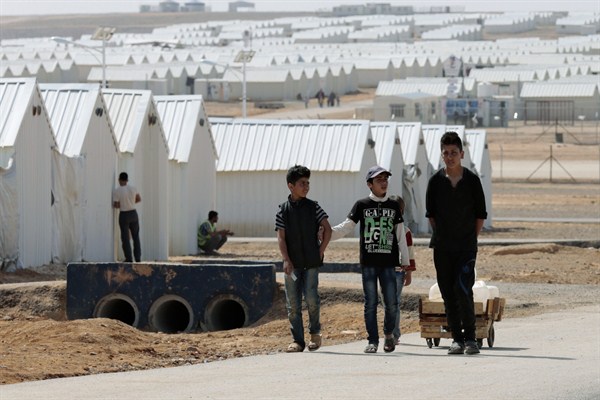The world is finally waking up to the fact that the international humanitarian system is falling apart. European nations are bickering over how to handle Syrian refugees, while Southeast Asian nations grapple with the outflow of Rohingya Muslims from Myanmar. Liberal commentators see parallels with the flight of Jews from Germany in the 1930s. “It is clear that the United States and other developed countries must find more room for refugees,” The New York Times editorialized this weekend, adding that United Nations agencies that help those who are suffering should be “amply funded.”
U.N. officials reading these lines are likely to have been relieved and exasperated. They have been warning that the humanitarian system is massively overstretched for some time. As aid expert Rahul Chandran noted earlier this year, the U.N.’s annual humanitarian appeals increased by 446 percent between 2004 and 2013. My colleague Sarah Hearn points out that “the number of people who depend on humanitarian aid has increased from 26 million to 76 million in the last decade.”
“The humanitarian system cannot both rapidly respond to new crises and continue to service situations of chronic need,” Chandran grimly concludes.

